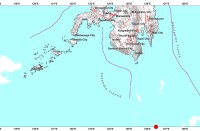(Eagle News)–President Rodrigo Duterte on Friday, Sept. 21, blamed the rise in inflation on the prices of oil.
In a speech in Lapu Lapu, Cebu, Duterte clarified however that it was “not an excuse.”
“I admit there is an inflation. But the number one culprit is price of oil,” he said.
Inflation reached 6.4 percent in August.
The Department of Finance recently released measures the government was undertaking to arrest inflation, noting that the “highest contributors to inflation” in August were electricity, gas, fuels, fish, rice, personal transport, vegetables and meat:
· On fish, the Department of Agriculture (DA) has committed to replicating the issuance of certificates of necessity to allow imports to be distributed in the wet markets in Metro Manila and to the other markets of the country;
· On rice supply issues, 4.6 million sacks of rice available in the warehouses of the National Food Authority (NFA) will be immediately released to the market across the country;
o The government also expects approximately 2.0 million sacks of rice previously contracted to be delivered before the end of September
o In addition, the NFA Council authorized the importation of 5.0 million sacks that will be arriving over the next one-and-a-half months and another 5.0 million sacks to be imported early next year
o To address the reported shortage in Zamboanga, Basilan, Sulu, and Tawi-Tawi, 2.7 million sacks will be allocated to these areas
o In addition, harvest has also started in many parts of the country, with the projected harvest for 2018 of 12.6 million MT of rice, the equivalent of 252 million sacks
· The economic managers have agreed to recommend to the President to issue a directive that will further simplify and streamline the licensing procedures for rice imports of the NFA;
· The Department of Trade and Industry (DTI), NFA, Philippine National Police (PNP), National Bureau of Investigation (NBI), and farmer groups will form a monitoring team to closely watch over the transport of rice from ports to NFA warehouses and retail outlets;
· On chicken, to reduce the gap between the farm gate and retail prices, the DA and DTI will convene poultry producers and set up public markets where producers can sell directly to the end customer. The DA will provide cold storage facilities for this purpose;
· The Sugar Regulatory Administration (SRA) will open the importation of sugar to direct users to moderate costs for consumers; and
· The Bureau of Customs (BOC) will prioritize the release of essential food items in the ports.






